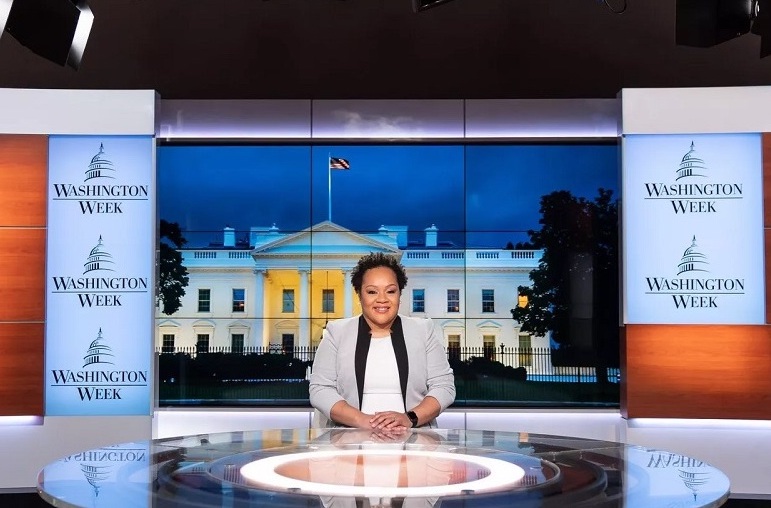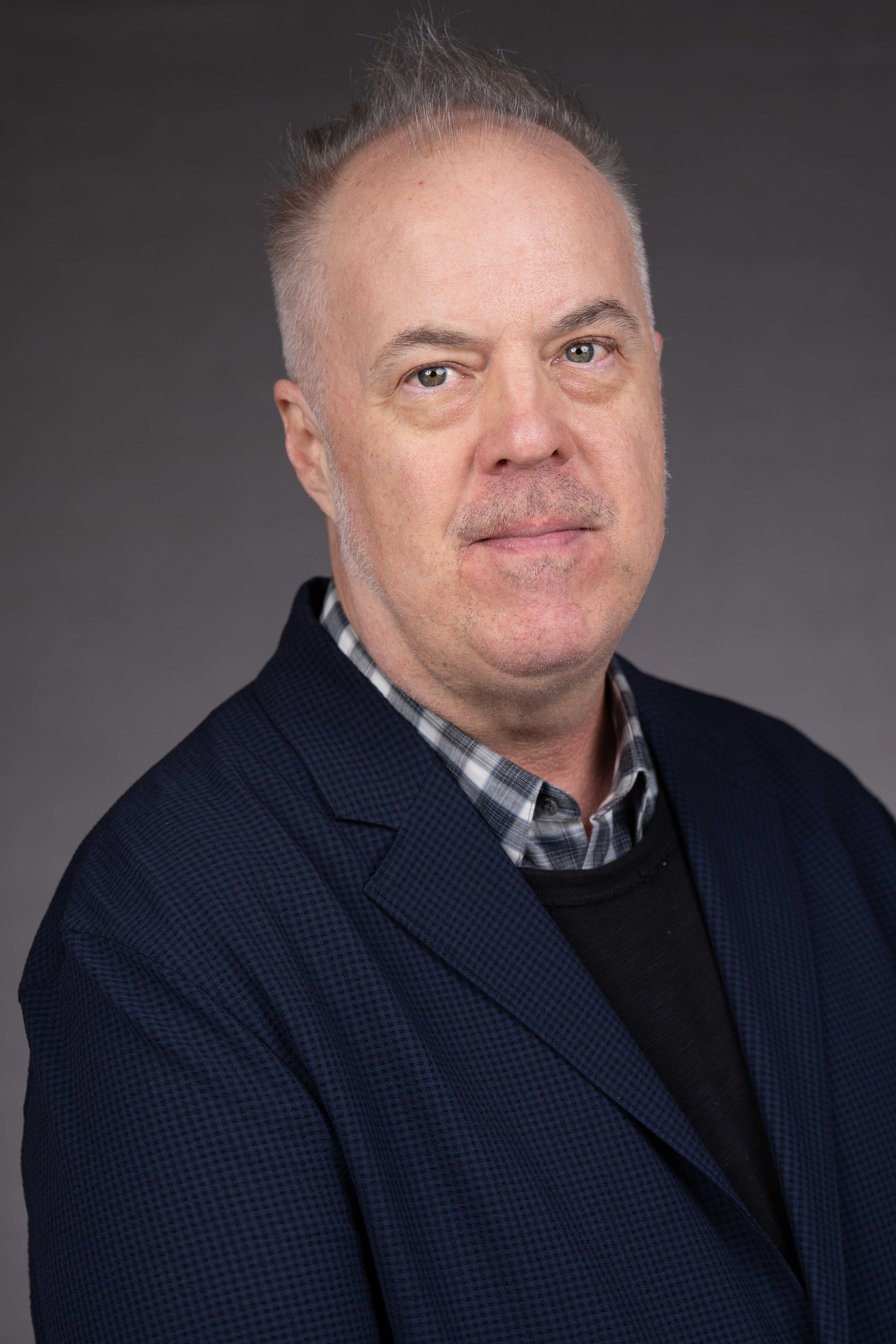Yamiche Alcindor on Telling Stories and Building Trust
By John Elsasser
November-December 2021
Yamiche Alcindor began her General Session on Oct. 18 with a tribute to Colin Powell, the first Black chairman of the Joint Chiefs of Staff and U.S. Secretary of State who died on this day at age 84.
“He was someone who had reputational issues when you think about the aftermath of the war in Iraq, but who was also pushing for civility, who had a lot to say about Americans and how we treat each other,” said Alcindor, the award-winning “PBS NewsHour” White House correspondent and moderator for the long-running “Washington Week” news series.
She quoted a passage from Powell’s commencement address at Howard University in May 1994. “Believe in America with all your heart and soul, with all of your mind. Remember that it remains the ‘last, best hope of Earth.’ You are its inheritors and its future is today placed in your hands.”
Alcindor said that she wants to think about the professions of journalism and public relations as communities holding the future of America and the world in their hands.
“It’s with this clear-eyed civil truth-telling — even from a man who had his faults — that we need to think about more than ever, given the moment that we find ourselves… at a crossroads between decaying of truth, attacking of science and a racial reckoning that has only just begun,” Alcindor said.
In a wide-ranging talk that PRSA Chair Michelle Olson, APR, hosted, Alcindor went on to say that 2020 and 2021 have been awful — “globally, nationally, personally, full stop.”
At the same time, she believes that the challenges and crises of the past two years “have led to some of the most consequential and important conversations that we as a nation, and I would say, as a world, have had in a generation.”
“So the questions that I’ve been thinking about: What does it mean to truly be an American? Do we want to live up to the sort of promises that the country is made to treat every man and woman equally?”
Telling human stories
To help understand her thinking and desire to tell stories of everyday people, Alcindor discussed her upbringing as the daughter of Haitian immigrants and how her background has informed her work.
Alcindor’s desire to become a journalist emerged in high school when she first heard about Emmett Till, a Black teen murdered in 1955 after a white woman falsely accused him of flirting with her.
“He was one of the youngest martyrs in the fight for equality. And a Google search of him showed me his face, and I suddenly knew what I wanted to be… I wanted to be a journalist, bringing America the hard and ugly truth of the country,” Alcindor said.
And from her first job as an intern at the Westside Gazette, a weekly African American newspaper in South Florida, through her roles as a reporter for USA Today and The New York Times, Alcindor has built a career on telling human stories about people who don’t always have their voices heard and humanizing the policies made on Capitol Hill.
“At the end of the day, what I think is most important is to make sure that you’re telling stories that move people… that are relevant to people,” she said. And she credited many communicators with whom she has had long-standing professional relationships for “consistently providing new voices that have shown themselves to be genuine, authentic and truth-telling.”
Finding ‘good trouble’
She talked about the idea of stirring up “good trouble,” referencing an op-ed the late congressman and civil rights activist John Lewis wrote for The New York Times before his death in July 2020.
“He went on to say that ordinary people with extraordinary vision can redeem the soul of America by getting into … good trouble. So, for me, journalism is my good trouble,” she said. “And I imagine that public relations may be your good trouble; it may be your way to be purposeful in the world, to be an investment in the world where you can feel as though you’re having an impact in creating narratives that make the world a better place.”
At its best, journalism must also stand up for what’s right and for what’s true — no matter how uncomfortable that makes people.
“I would say the same as is true for you and your field: the idea that public relations people need to be founded on this idea of encouraging all of us to tell those stories to combat disinformation,” she said. “For me, building trust means consistently telling those stories and consistently having a conversation, not just about specific stories, but also having conversations about what your focus is, what your values are. That, to me, is [a profound] way to build meaningful relationships.”
Post-Speech Q&A With Yamiche Alcindor
On engaging young adults who use TikTok:
I’m a millennial, but TikTok is where my age starts to show. I’m not on TikTok personally. “Washington Week” is on TikTok. PBS NewsHour is on TikTok. If you don’t understand it… If your office is wondering how do we get to this, maybe you need to hire an intern or someone straight out of college who understands the platform.
When I started at The Washington Post, I was writing articles on my iPhone and covering stories about Facebook. My editors were looking at me like I was an alien. I was that fresh generation who knew how these things were going to be changing lives.
When I think about TikTok, I go to my younger staffers and ask what I should be doing [on the platform]. That’s not to say that millennials and older people can’t understand what’s going on with TikTok. It’s about being open to learning.
On trust in the media:
All we can really do is try to do our jobs well and put the truth out there. While trust in media is down, so is trust in government and so is trust in science. We’re dealing with a population that doesn’t trust a lot of things.
For me, I’m going to do my job the best that I can without stressing myself out that I haven’t been able to convince someone that the COVID-19 vaccine won’t cause [them harm]. The best that I can do is put out information that is real and hope that I’m getting people to look at it.
On stopping the spread of disinformation in the media:
As a reporter, you have to be in touch with facts, polling and data. When we’re ripping and running with stories, it’s about showing up with some sort of data…and voices that are steeped in the truth.



